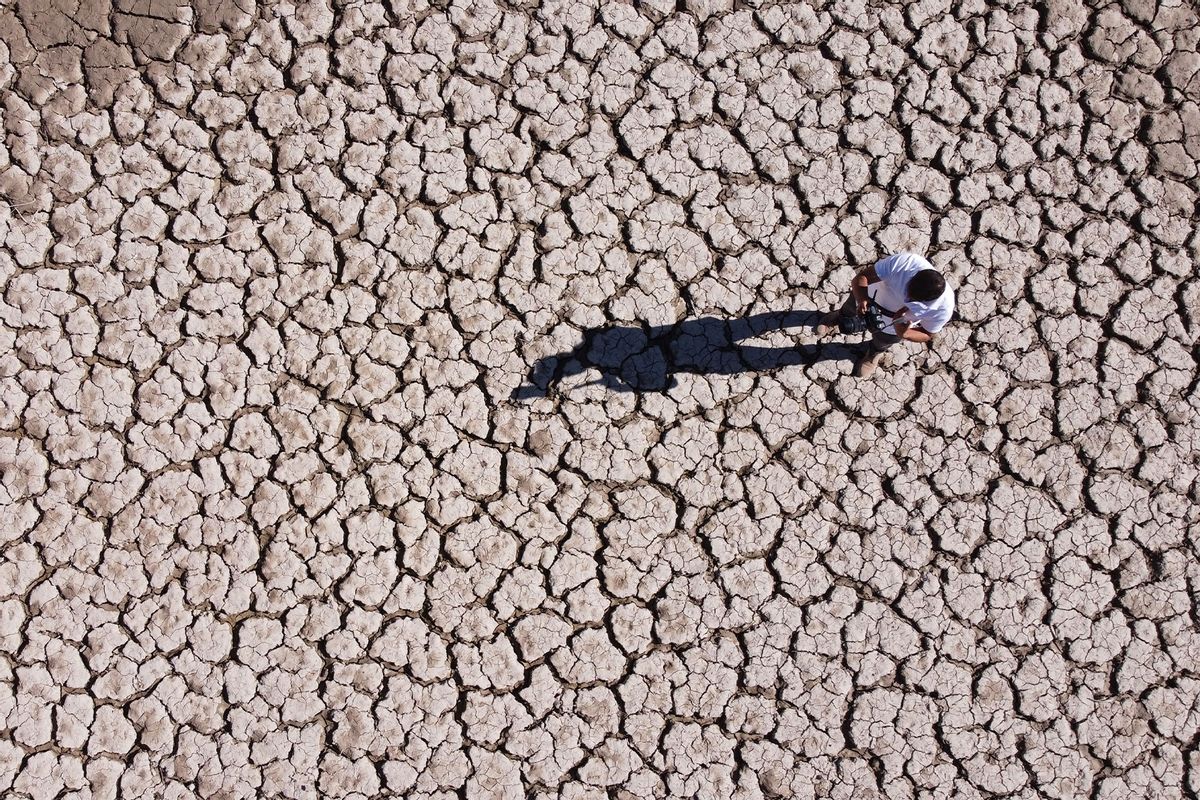This calendar year brought the United States its third hottest summer on record and Europe its hottest summer ever. And you can set aside hope it was just funny timing. Last year was the sixth hottest recorded year across the globe. The year before that, 2020, was the hottest ever recorded.
This isn't a coincidence; it's a trend. Carbon dioxide, methane and other greenhouse gas emissions — generated en masse by fossil fuel production and consumption — have warmed our planet for generations, and those chickens have come home to roost.
Climate change is now our greatest national security crisis.
This summer, cities, farms and forests across the globe were cooked by historic heat waves. July brought Europe a weeks-long heat wave that caused major droughts across the continent and killed thousands in its immediate wake. Now, France's national statistics institute estimates 11,000 additional deaths in that nation alone. In September, a brutal heat wave ripped through the United States with particularly devastating consequences in California, where people fell ill, power grids buckled and wildfires raged.
Those were just two of the major global heat waves that hit us this summer.
We've seen our planet bend. We cannot allow it to break.
I've spent decades working in disaster relief, including hurricane response in my home state of Louisiana. I know firsthand the urgency of being prepared for natural disasters. I've also spent years working in environmental advocacy, and I've seen our planet poisoned by unnatural forces that enable unexpected, deadly heat waves and hurricanes to strike with only days' notice.
Before all that, I served over 37 years in the U.S. Army, where I retired as a lieutenant general. In all my years serving this country, I never saw our leaders sit back and wait for a crisis to catch us off guard. We trained, prepared for all possible outcomes and, when we could, took steps to prevent crises before they arose. That's the kind of thinking and planning we need now.
Want a daily wrap-up of all the news and commentary Salon has to offer? Subscribe to our morning newsletter, Crash Course.
It's time we think about the climate and climate-related occurrences as we think about our national security, because that's what's at stake. That means:
- Creating a federal Department of Climate Security to oversee the government's climate agenda, enforce climate standards and regulations, and lead international diplomatic efforts relating to climate change;
- Carving a meaningful amount of the U.S. government's operating budget for a climate department and for advancing the administration's climate objectives;
- Rebuilding America's infrastructure and preparing vulnerable states for storm and heat resiliency before we are left picking up the pieces;
- Recommitting ourselves to international diplomacy and shared global climate goals, even with geopolitical competitors, because the stakes are too damn high;
- Acknowledging that climate drives many things — poverty, food shortages, famine, deadly weather, political instability — that precede actual armed conflict.
It also means divesting from the things we know are killing us.
We have all the evidence in the world that "natural" disasters, like the heat waves that ravaged Europe and the United States, are driven by unnatural forces — oil drilling, fracking, gas liquefaction and exportation. It's time we move away from climate-killing industries and dependencies and move toward green, renewable energy.
We can start that work now. The gas industry is looking to develop a dozen more foreign gas export terminals, each of which would seek legal approval to emit millions of tons of methane and CO2 every year. More gas exported from the United States will fuel more deadly heat waves across the world.
Our future is at stake. Email President Biden and federal regulators right now. Tell them we cannot afford more heat waves, hurricanes, emissions or terminals. Our national security is at risk. Take action here.
Read more
about the climate crisis and possible solutions

Shares